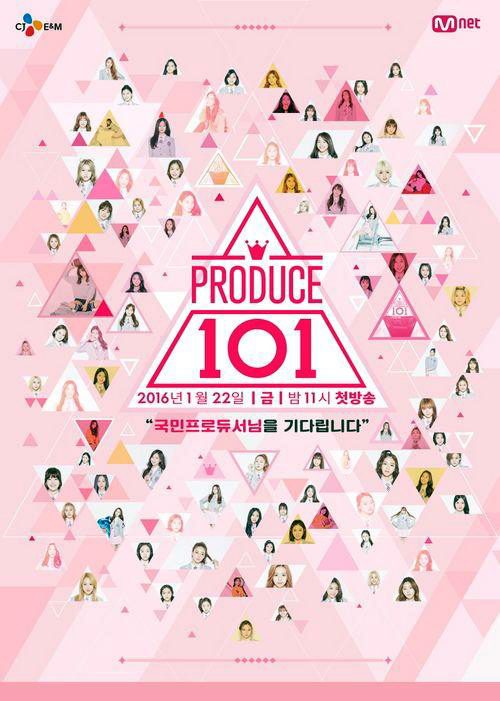
*Photo Credit: http://mnettv.interest.me/produce101/main.dbp (the main page of Produce 101)
“Your one vote determines the fate of girls!”
This is the quote from the new idol survival program “PRODUCE 101”, which is being broadcasted on Mnet. Within the show, a hundred and one trainees from big and small K-pop corporations compete against each other to become part of a new female K-pop idol group consisting of 11 members. In order to debut, and achieve their long-cherished dream, these girls need to present their strengths and uniquenesses to “public producers”, the viewers of the show.
That the viewers own the power to determine the “fate” of the 101 highly trained girls, and that the results are solely dependent on the votes of the public, not the judges, are making this program especially appealing to those who were bored of long-standing survival programs such as Superstar K, K-pop Star, or Voice Korea.
The public’s opinions of the show varied when it was first introduced. While some interested netizens curiously asked, “how can they have one hundred one girls performing on the one stage?”, some critical voices were raised saying, “another dull survival program?” or “the program just generates more competition among the younger generation”.
Currently, the program seems to be succeeding with ratings of 3.5% after its fifth broadcast. However, as the program has become more popular, critical voices on the internet and SNS have become more heated.
The main controversy is the fiercely competitive atmosphere that the program producers are creating. The ages of participants in the show vary, from 13 to 28, but they are all relatively young. Critics call the producers’ attempt to create conflicts among youngsters as “devil editing”, believing that Mnet is trying to increase its ratings through provocation, which mainly shapes the popularity, and the image of participating trainees. In fact, the recent scene of trainees from small corporations gossiping about a trainee from a large corporation bred discord among the girls and the viewers who support certain trainees.
“Devil editing” is not the end of generating competitive culture among these teenage girls.
The program is known for ranking all the trainees from one to one-hundred one, and providing designated seats that are arranged in the pyramid-shape indicating the specific rankings. Many advocates for the trainees condemned the merciless directors, feeling sorry for the pigeon-livered young girls who may have felt tormented.
The main program director of PRODUCE 101, Joon-Yeong Ahn, clarified this controversy. “We used the triangular set in order to clearly communicate the rankings to the viewers. There are no favors related to rankings. The reason we divided the group is to provide the personal training necessary to each trainee.”
The original intentions of producers, or the K-pop corporations, are not particularly significant. What really matters is that this program should not distort the long-cherished dreams of sincere girls who are practicing to achieve their goals. We do not know whether this program may or may not further exacerbate Korea’s competitive culture through continuous broadcasting with “devil editing”, but we must prevent these girls being internally wounded, or trampling on the dreams of other teenagers who are watching this program.
Going further, we must realize that whether or not girls are being mistreated, girls who want to break into K-pop is endemic, and the issues publicized through “PRODUCE 101” may be the tip of iceberg. Worse issues may exist everywhere in the K-pop industry behind the scenes.

Jeongyoun Choi
11th grade
Chadwick International School

